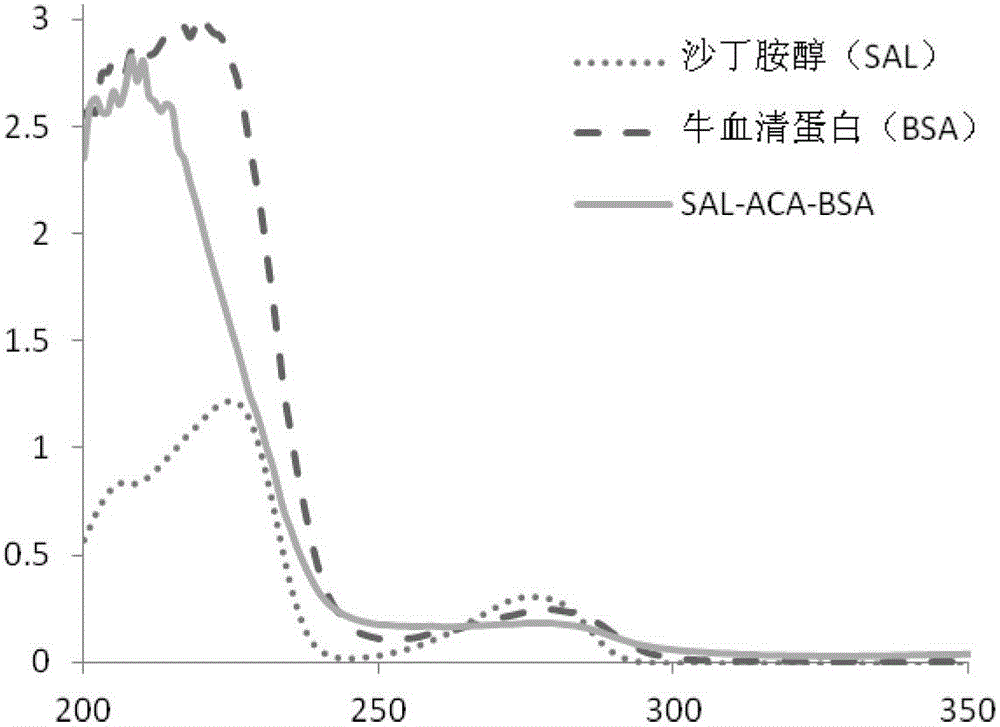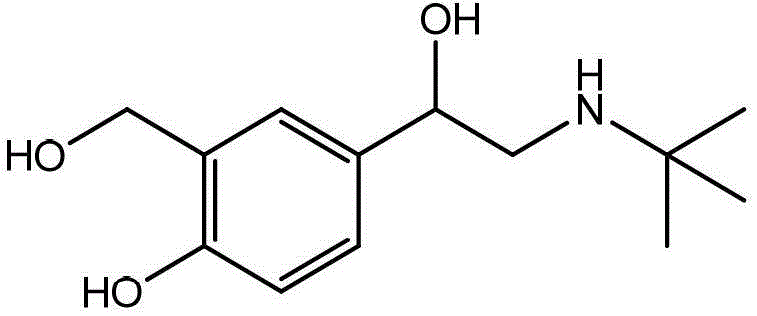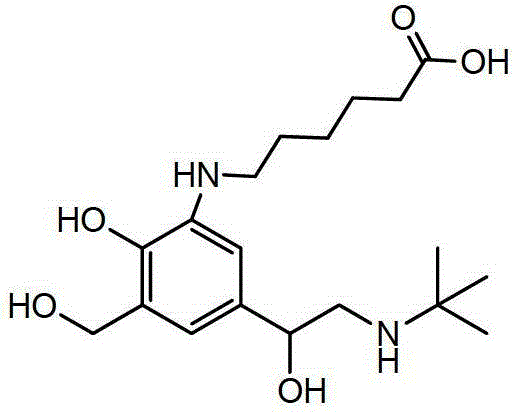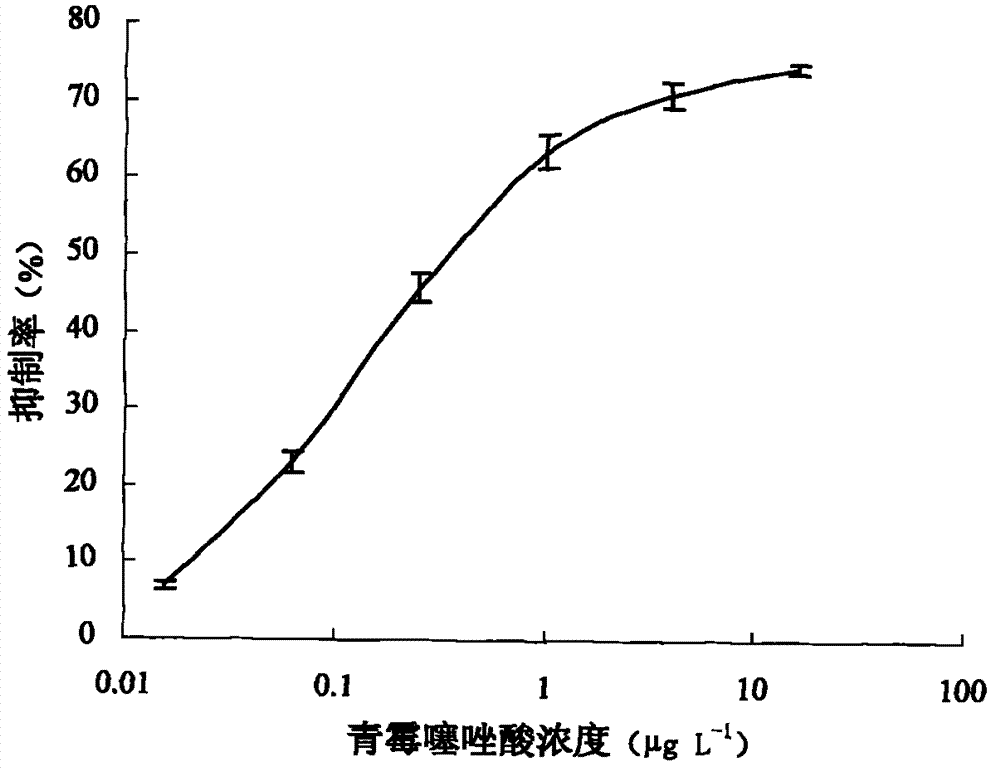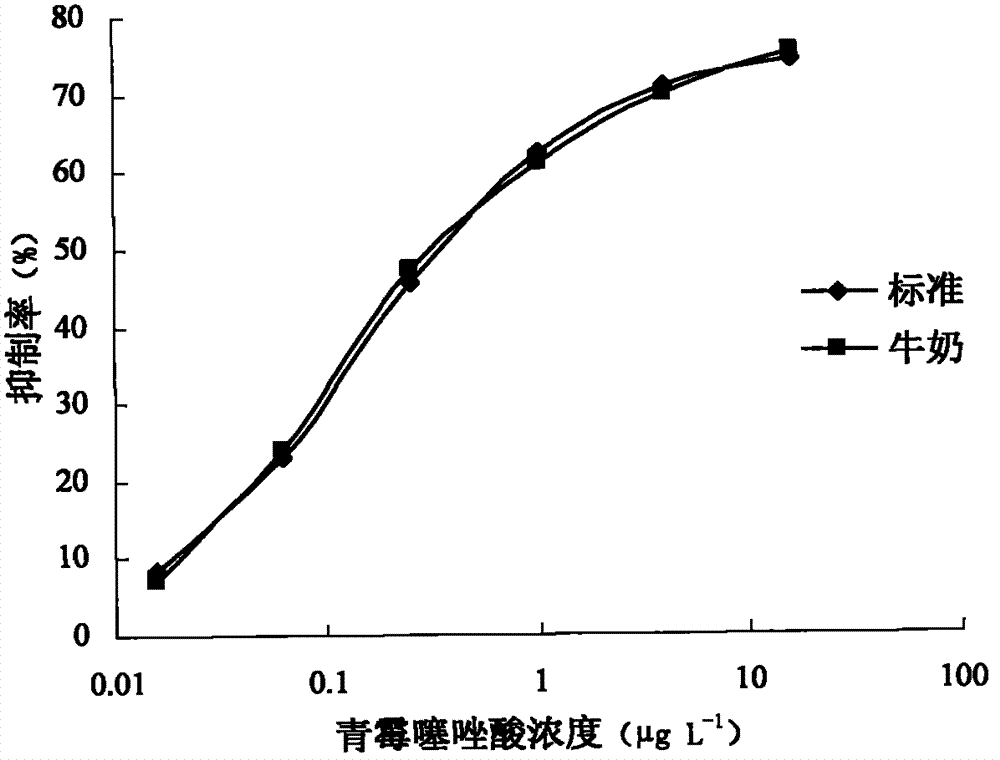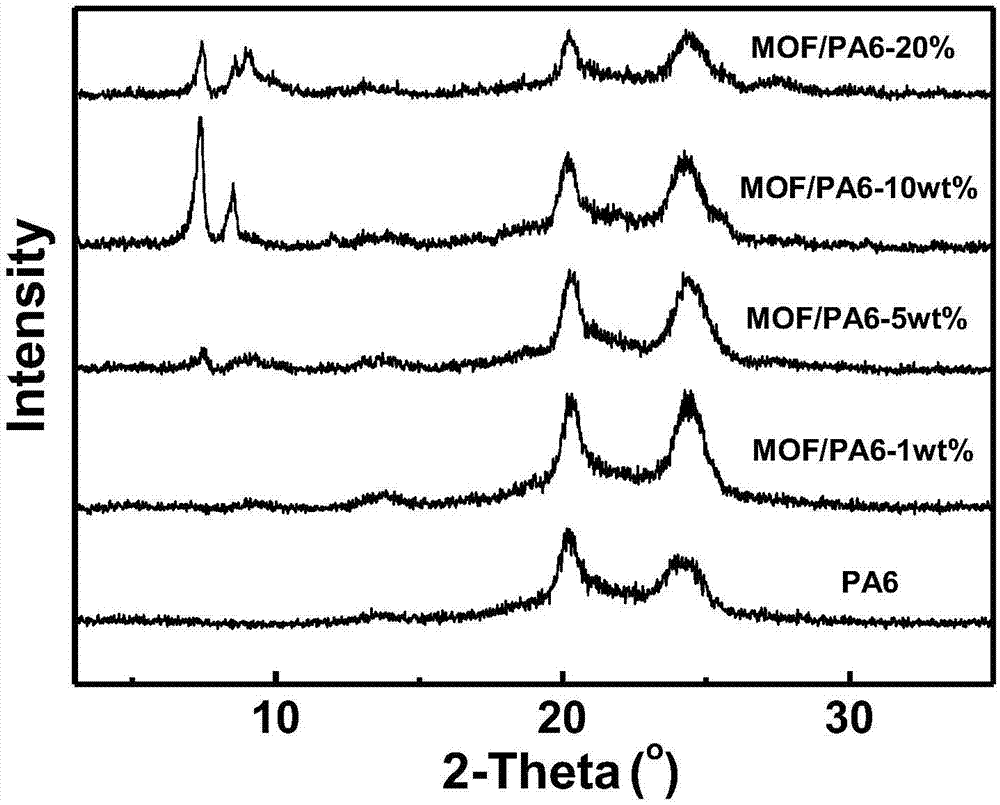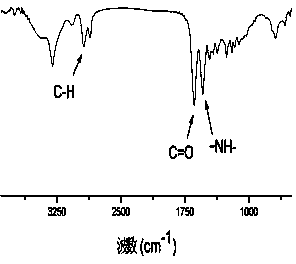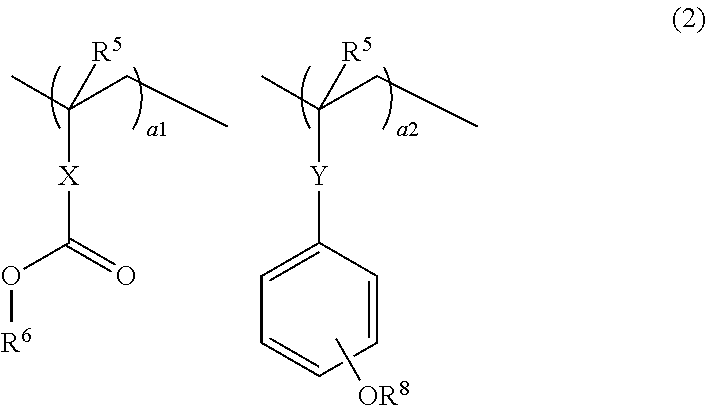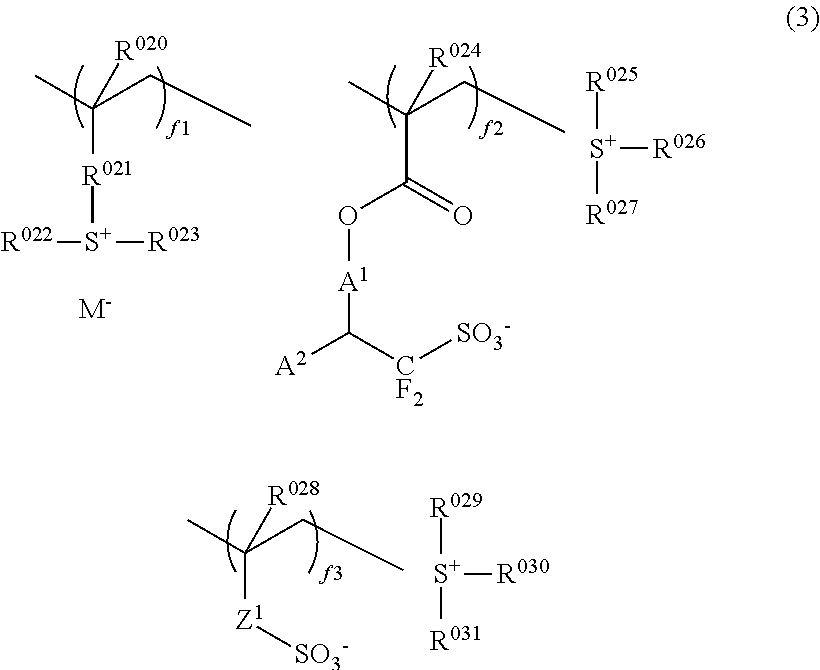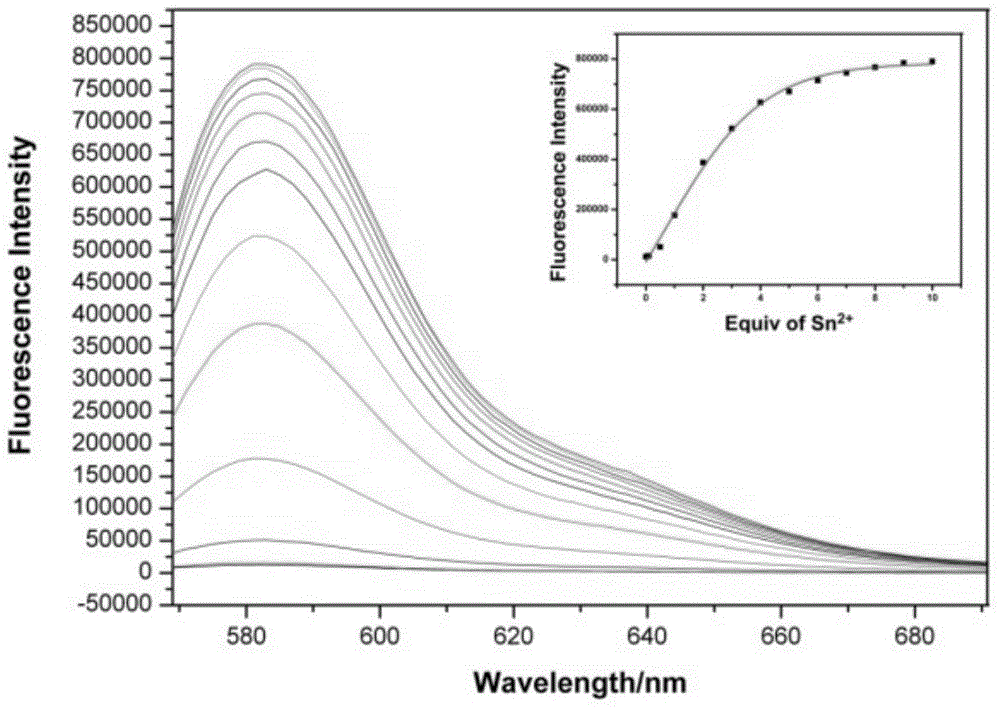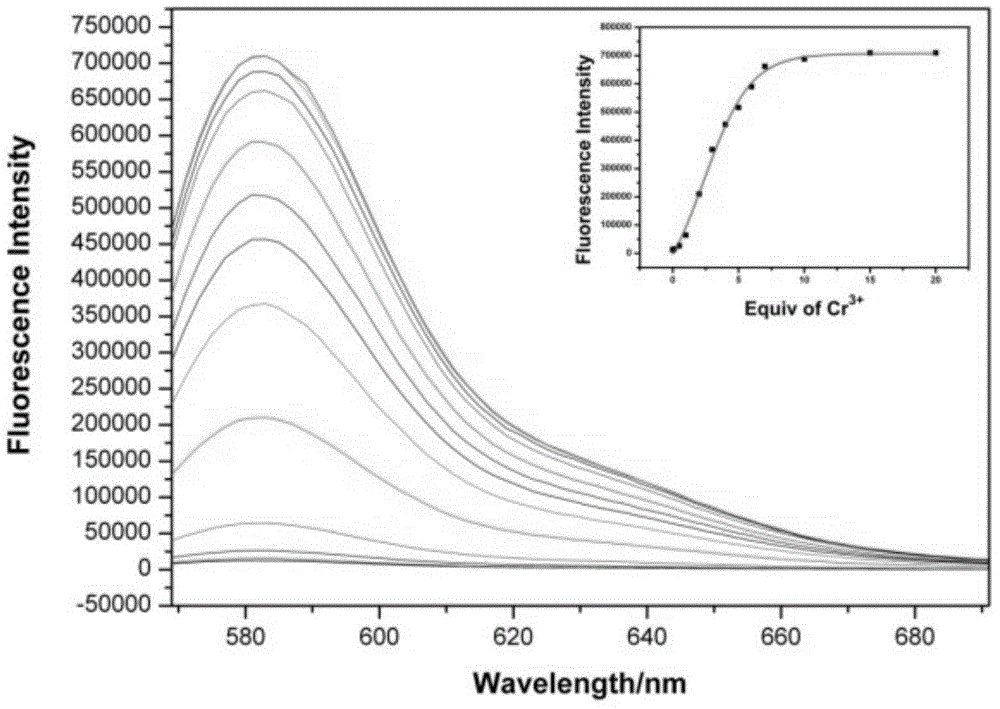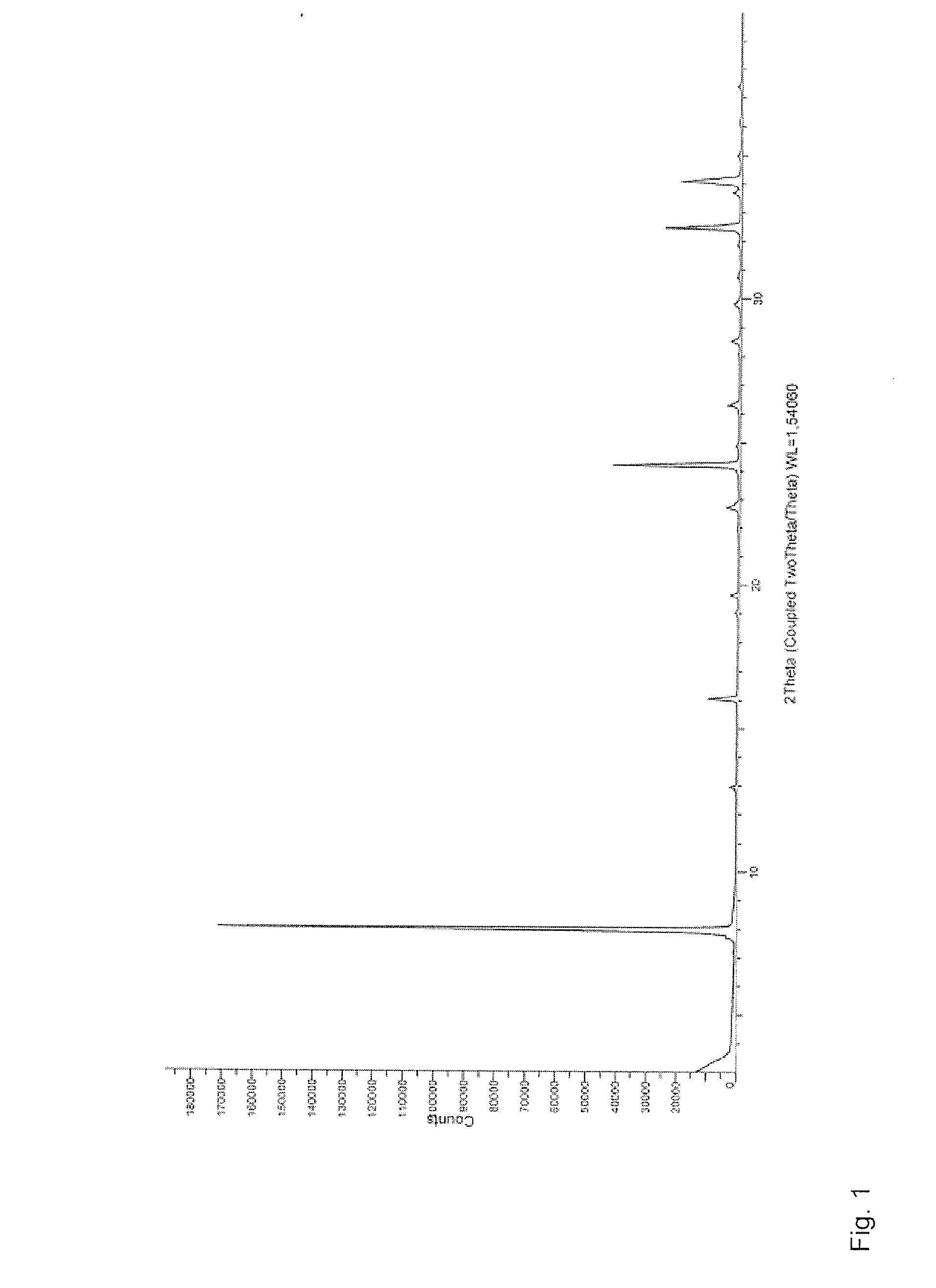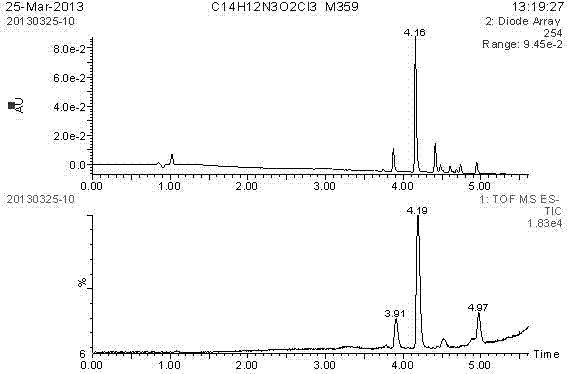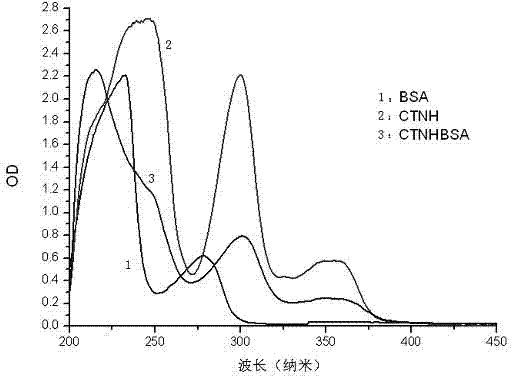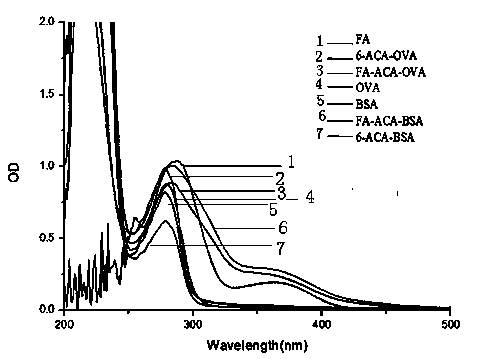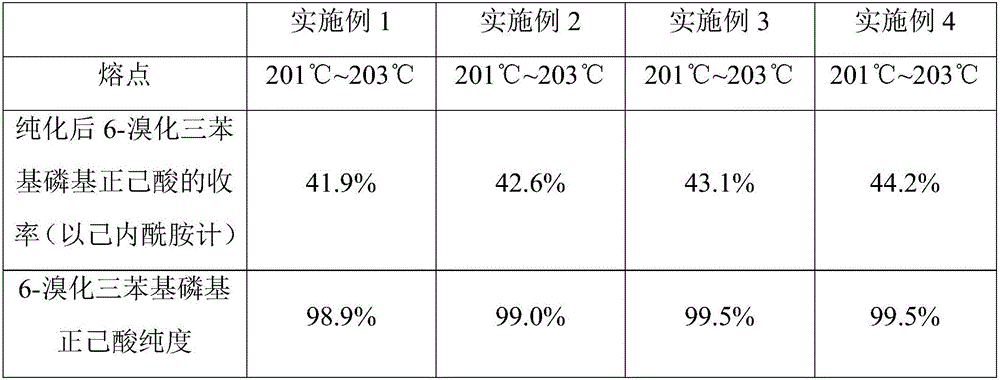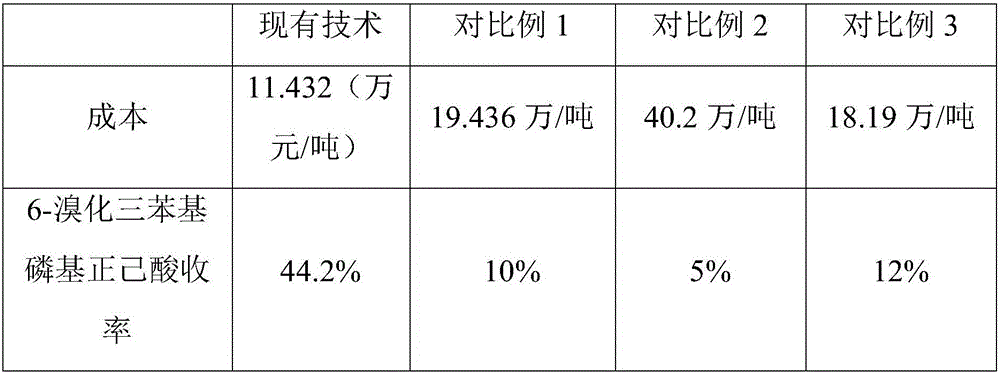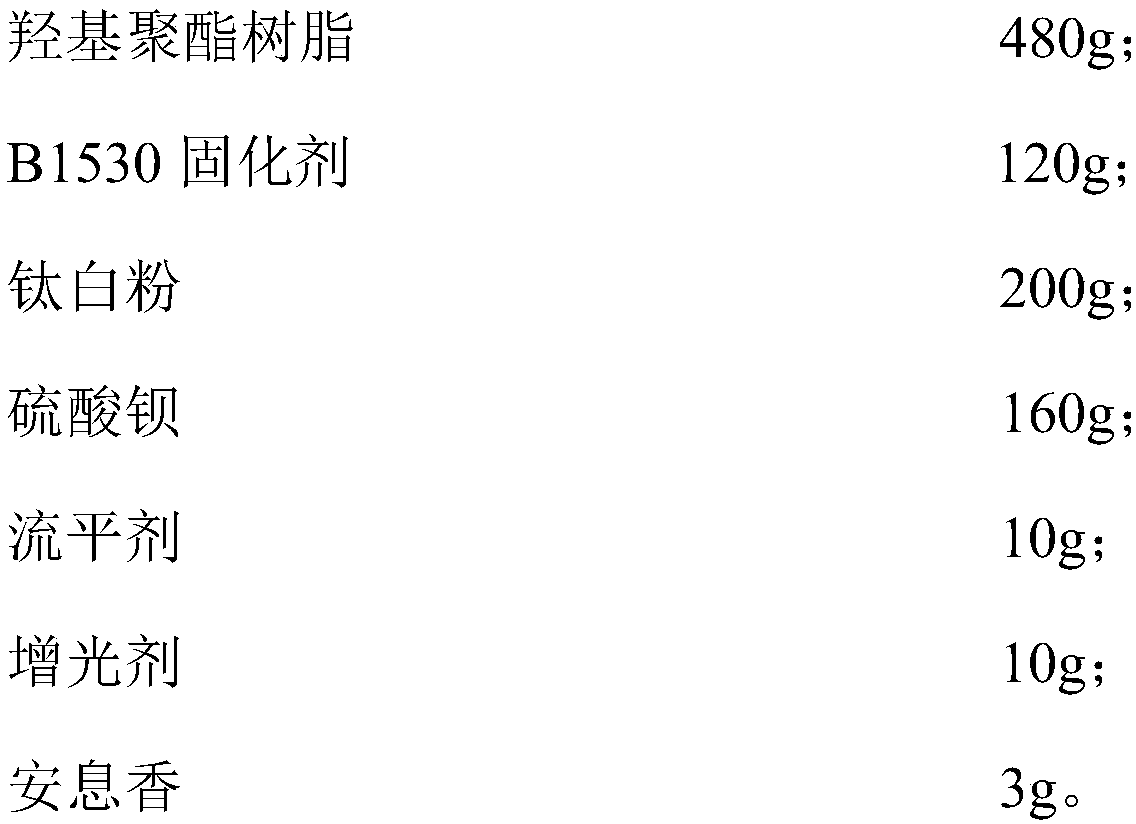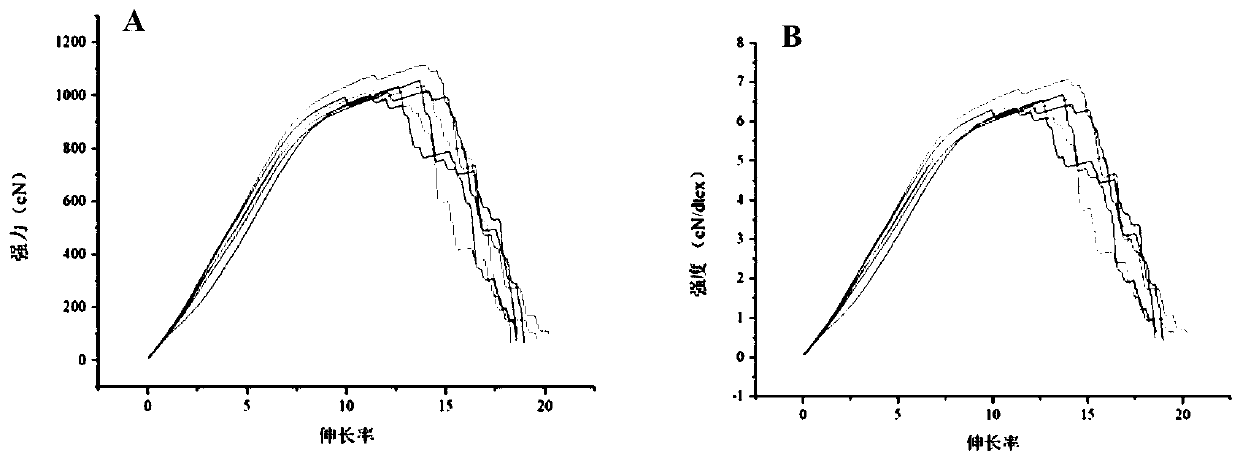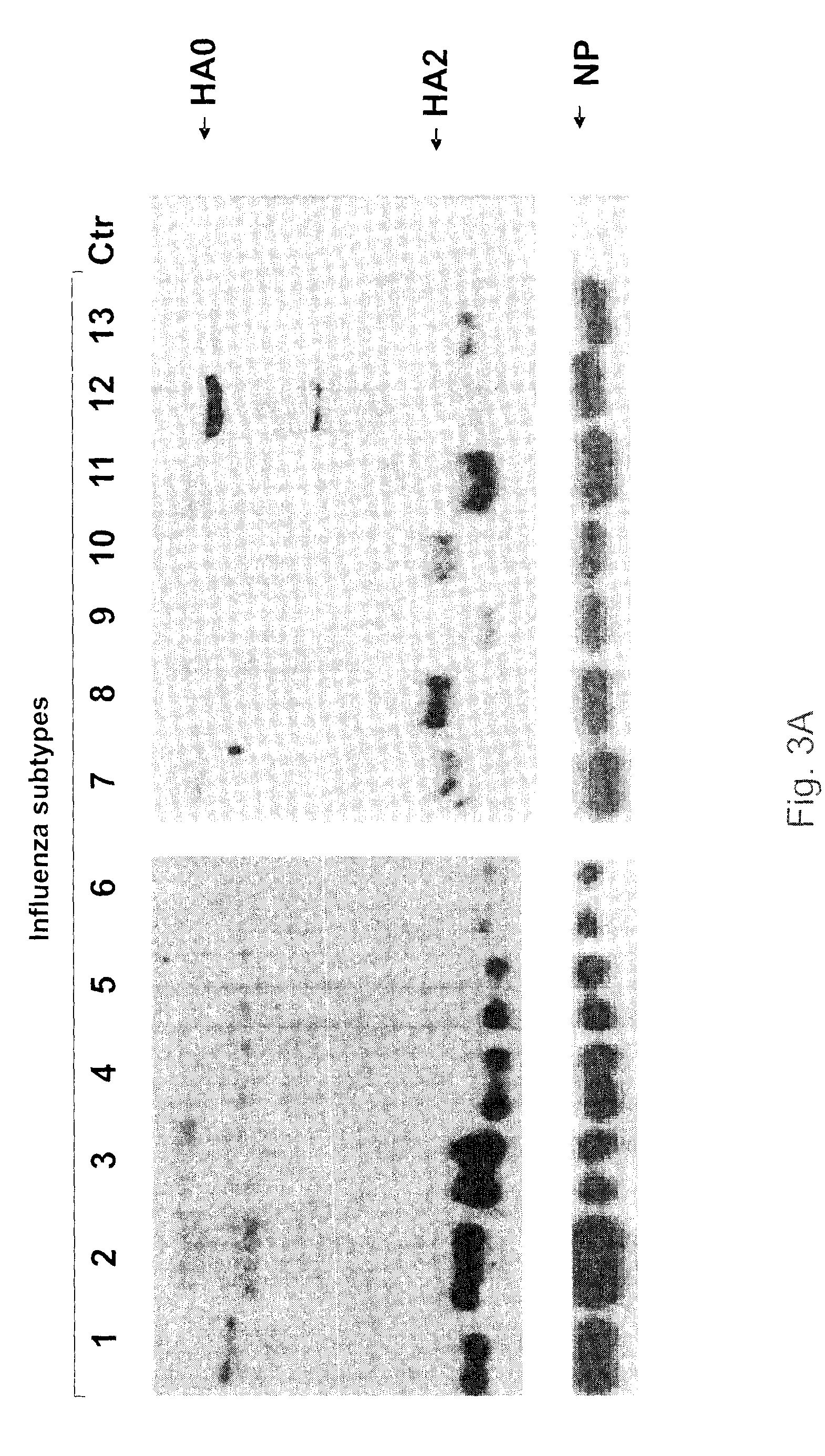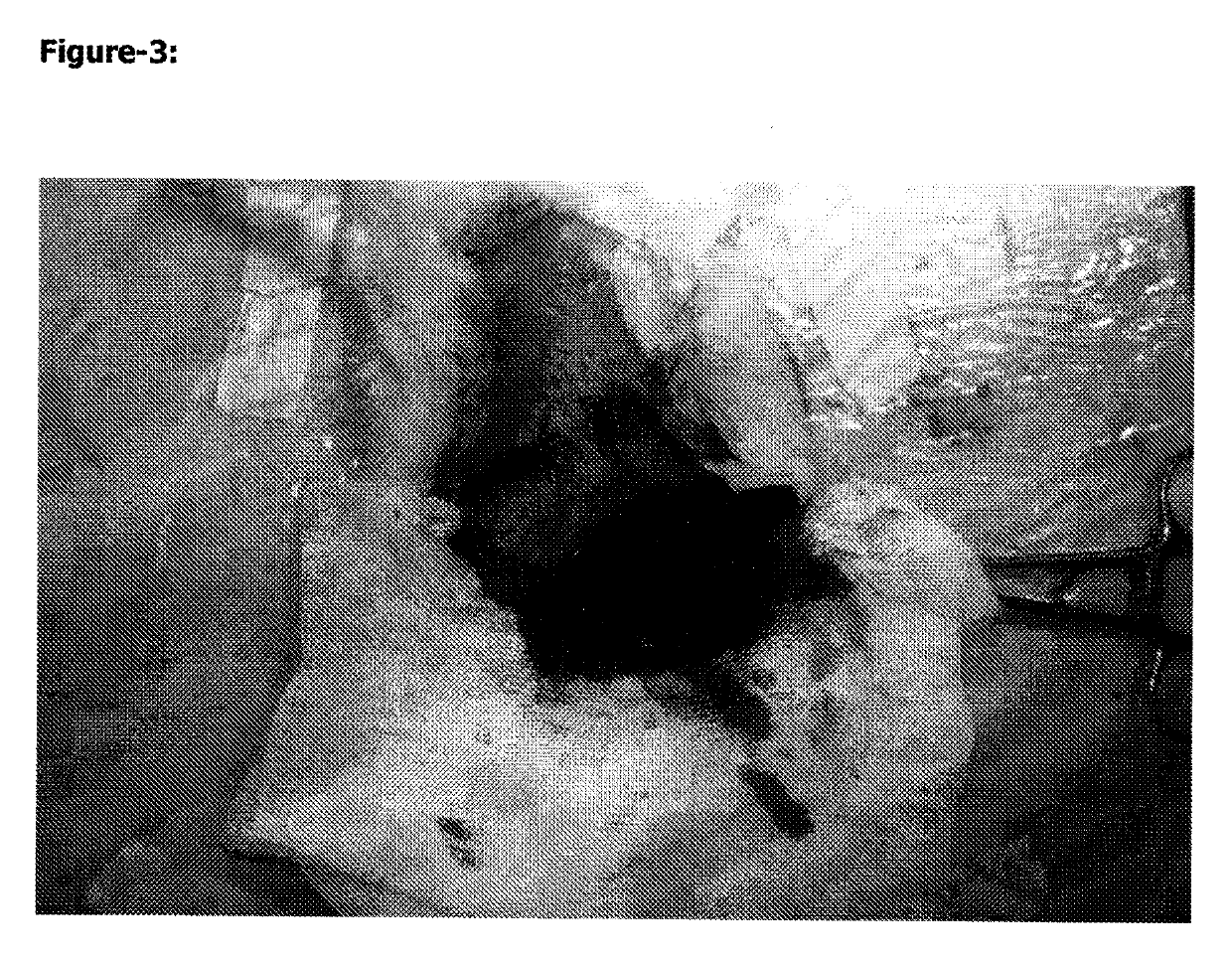Patents
Literature
Hiro is an intelligent assistant for R&D personnel, combined with Patent DNA, to facilitate innovative research.
86 results about "6-Aminocaproic Acid" patented technology
Efficacy Topic
Property
Owner
Technical Advancement
Application Domain
Technology Topic
Technology Field Word
Patent Country/Region
Patent Type
Patent Status
Application Year
Inventor
Preparation method of graphene modified nylon 6 fiber
ActiveCN103215689AImprove performanceImprove interfacial bond strengthMonocomponent synthetic polymer artificial filamentArtifical filament manufactureFiberNylon 6
The invention relates to a preparation method of a graphene modified nylon 6 fiber and belongs to the technical field of a functional fiber material. The preparation method comprises the following steps of: carrying out carboxylation and acylating chlorination treatment on graphene; then carrying out diamine treatment to obtain graphene oxide with an active amino on the surface; carrying out polymerization reaction by utilizing the aminated graphene and caprolactam through an initiator 6-aminocaproic acid to prepare a modified nylon 6 melt of the graphene; and carrying out spinning and stretching through a fusion and spinning process to obtain the graphene modified nylon 6 fiber. The technical scheme of the invention utilizes aminated graphene enhanced 6 to improve the interface bonding strength with a base resin, so as to be good for improving the whole performance of the graphene modified nylon 6 fiber. A fiber material prepared by the preparation method provided by the invention can be widely applied to the technical fields of aerospace, cars and ships, communication and transportation, mechano-electronics and the like.
Owner:SUZHOU UNIV
Polyamide resin
ActiveUS20090099318A1Excellent in lasting thermal stabilityHigh industrial valueNon-fibrous pulp additionPaper/cardboardPolyamideAminocaproic acid
To provide a polyamide resin excellent in lasting thermal stability and having a high biomass ratio.A polyamide resin comprising adipic acid units, pentamethylenediamine units and 6-aminocaproic acid units as constituents, wherein the weight ratio of the sum of the adipic acid units and the pentamethylenediamine units to the 6-aminocaproic acid units is 97:3 to 75:25. The pentamethylenediamine is preferably one produced from lysine using lysine decarboxylase, lysine decarboxylase-producing cells or a treated product of the cells.
Owner:MITSUBISHI CHEM CORP
Method for preparing hemostatic 6-amino caproic acid
InactiveCN101125821ANot easy to mixEasy to achieve complianceOrganic compound preparationAmino-carboxyl compound preparationIon-exchange resinCaproic Acid
The invention discloses a preparation method of 6-aminocaproic acid which is a hemostatic. The preparation method is characterized in that caprolactam is dissolved in diluted hydrochloric acid, heated and refluxed to produce 6-aminocaproic acid hydrochloride which is neutralized by spherical macro-porous styrene type weak alkaline anion exchange resin, thereby acquiring the product after treatment. Compared with other preparation methods, the reaction condition of the method is mild, and metal ion can not be mixed easily, the method is more scientific and rational, the standard of the burn residue required by the original material quality can be realized more easily, white crystal can be obtained from the product without activated carbon decolorizing, the operation is simple, the synthesizing cost is reduced and mass production of the technology is more suitable.
Owner:TIANJIN UNIVERSITY OF TECHNOLOGY
Synthesis method of specific salbutamol artificial antigen
InactiveCN103145831AStrong specificityHigh sensitivityOvalbuminSerum albuminOrtho positionSynthesis methods
The invention discloses a synthesis method of a specific salbutamol artificial antigen, belonging to the technical field of biological chemical engineering. The synthesis method disclosed by the invention comprises the following steps of: activating salbutamol through a formaldehyde solution, and connecting 6-aminocaproic acid in the ortho-position of a phenolic hydroxyl group to obtain a salbutamol hapten; and coupling a carboxyl group on the salbutamol hapten with an amino group on a carrier protein to obtain the salbutamol artificial antigen. The synthesis method disclosed by the invention can make up for the insufficiencies and defects of the existing salbutamol antigen synthesis technologies, the salbutamol artificial antigen with high specificity is obtained, the specificity of a produced antibody is high, and the sensitivity is high; and experimental results show that the antiserum titre of an animal immunized by using the salbutamol artificial antigen disclosed by the invention can achieve 80000, the detection limit is 0.5ng / mL, and the half-inhibitory concentration IC50 is 5ng / mL. The antigen or the antibody disclosed by the invention can be used for establishing an enzyme-linked immunosorbent analytical method and a colloidal gold test strip rapid assay method so as to rapidly detect the residues of the salbutamol in a food and further realize broad application prospects.
Owner:JIANGNAN UNIV
Lactic acid-amino acid copolyester amide and preparation method thereof
The invention relates to lactic acid-amino acid copolyester amide and a preparation method thereof and relates to the technical field of the copolyester amide. The lactic acid-amino acid copolyester amide can be used for improving thermal stability and mechanical strength of a polylactic acid material, and also can be used as a compatibilizer in the blending of polylactic acid and nylon. The lactic acid-amino acid copolyester amide is prepared by copolymerization of any amino acid and lactic acid, wherein the monomer of any amino acid can be 11-amino undecanoic acid, 12-amino dodecanoic acid and 6-aminocaproic acid or caprolactam, glycine, aminopropionic acid, aminobutyric acid, 8-aminocaprylic acid or octane lactam, 9-aminononanoic acid or nonane lactam, 10-amino decenouc acid or decane lactam, dodecane lactam, 14-amino tetradecanoic acid. According to the lactic acid-amino acid copolyester amide and the preparation method thereof disclosed by the invention, the polylactic acid products are various, the thermal performances and the mechanical performances of the polylactic acid products are improved and the application range of the material is more extensive.
Owner:盐城创咏新能源投资有限公司
Preparation methods and applications of benzylpenicilloic acid artificial antigen and benzylpenicilloic acid artificial antibody
InactiveCN103483445AHigh similarityThe characteristic structure remains intactSerum immunoglobulinsDepsipeptidesChemical synthesisPenicillin
The invention discloses preparation methods and applications of a benzylpenicilloic acid artificial antigen and a benzylpenicilloic acid artificial antibody, and relates to a method for simply, quickly and effectively detecting penicillin G and a degradation product of penicillin G, namely benzylpenicilloic acid. The specific antibody to penicillin G and the degradation product of penicillin G, namely benzylpenicilloic acid, is prepared by designing and synthesizing a hapten and the artificial antigen of a penicillin veterinary drug penicillin G with a 6-aminocaproic acid molecular structure and a beta-lactam ring molecular structure, and the degradation product of penicillin G, namely benzylpenicilloic acid; a molecular specific antigenic determinant of the veterinary drug is highlighted; the chemosynthesis difficulty is overcome; and an immune animal induces to generate the specific antibody with very high affinity.
Owner:TIANJIN UNIVERSITY OF SCIENCE AND TECHNOLOGY
Preparation method for MOF/nylon 6 composite material
The invention relates to modified nylon 6 resin, and a preparation method and an application thereof. The modified nylon 6 resin provided by the invention is prepared by addition of metal-organic framework (MOF) nanoparticles. The preparation method comprises the following steps: (1) dissolving a metal salt and an organic ligand used as MOF precursors, and a polymer monomer namely caprolactam intoa mixed solution composed of water and a polar organic solvent, and carrying out a reaction under heating at a certain temperature for a period of time so as to obtain a nanometer MOF dispersion; (2)carrying out evaporation so as to remove the polar organic solvent in the nanometer MOF dispersion obtained in the step (1), adding 6-aminocaproic acid into residues, and carrying out a polymerization reaction so as to obtain MOF nanoparticle modified nylon 6 resin masterbatches; and (3) subjecting the modified nylon 6 resin masterbatches obtained in the step (2) and nylon 6 (a market product) tomelt blending so as to obtain MOF nanoparticle modified nylon 6 resin. According to the invention, the MOF nanoparticles are used as a modifying agent in the process of polymerization, and the modifying agent can significantly improve crystallization properties of the modified nylon 6 resin provided by the invention.
Owner:常州锦弘新材料有限公司
Method of Making 6-Aminocaproic Acid As Active Pharmaceutical Ingredient
ActiveUS20140039219A1High purityReduce water contentOrganic compound preparationAmino-carboxyl compound preparationSolubilityAminocaproic acid
The present invention provides a method for making 6-aminocaproic acid as an active pharmaceutical ingredient. The method comprises: performing a hydrolysis procedure to have ε-caprolactam react with acid or base to generate a first reaction mixture, performing a modification procedure to have a solubility regulating agent reacts with 6-aminocaproic acid in the first reaction mixture to form a second reaction mixture including an aminocaproic acid intermediate, performing a separation procedure to have the intermediate separated from the second reaction mixture and performing a hydrogenation procedure to have the aminocaproic acid intermediate hydrogenated to form a 6-aminocaproic acid product.
Owner:SUNNY PHARMTECH
Preparation method of graphene modified nylon 6 fiber
ActiveCN103215689BEase of industrial applicationImprove interfacial bond strengthMonocomponent synthetic polymer artificial filamentArtifical filament manufactureFiberNylon 6
The invention relates to a preparation method of a graphene modified nylon 6 fiber and belongs to the technical field of a functional fiber material. The preparation method comprises the following steps of: carrying out carboxylation and acylating chlorination treatment on graphene; then carrying out diamine treatment to obtain graphene oxide with an active amino on the surface; carrying out polymerization reaction by utilizing the aminated graphene and caprolactam through an initiator 6-aminocaproic acid to prepare a modified nylon 6 melt of the graphene; and carrying out spinning and stretching through a fusion and spinning process to obtain the graphene modified nylon 6 fiber. The technical scheme of the invention utilizes aminated graphene enhanced 6 to improve the interface bonding strength with a base resin, so as to be good for improving the whole performance of the graphene modified nylon 6 fiber. A fiber material prepared by the preparation method provided by the invention can be widely applied to the technical fields of aerospace, cars and ships, communication and transportation, mechano-electronics and the like.
Owner:SUZHOU UNIV
Chemically amplified resist composition and patterning process
ActiveUS9017922B2Wide focusIncrease contrastOrganic chemistryPhotosensitive materialsResistDissolution
A chemically amplified resist composition comprising a base polymer and an amine quencher in the form of a β-alanine, γ-aminobutyric acid, 5-aminovaleric acid, 6-aminocaproic acid, 7-aminoheptanoic acid. 8-aminooctanoic acid or 9-aminononanoic acid derivative having an unsubstituted carboxyl group has a high contrast of alkaline dissolution in rate before and after exposure and forms a pattern of good profile at a high resolution, minimal roughness and wide DOF.
Owner:SHIN ETSU CHEM IND CO LTD
Rhodamine B-based fluorescence sensor and preparation
InactiveCN104447774ASimple structureGood choiceOrganic chemistryFluorescence/phosphorescenceRotary evaporatorTetrahydrofuran
The invention discloses a rhodamine B-based fluorescence sensor and preparation. The preparation comprises the following steps: dissolving 3-(3',6'-bi(diethyl amino)-3-oxaspiro[isoindoline-1,-1,9'-xanthene]-2-yl) propanal (A) in methyl alcohol, adding 6-aminocaproic acid (B), and stirring at room temperature; dissolving sodium triacetoxyborohydride in tetrahydrofuran, adding to a reaction liquid in the step 1, and further carrying out stirring reaction at room temperature; dropwise adding a saturated sodium bicarbonate solution to the reaction liquid, and further stirring; and removing a solvent by virtue of a rotary evaporator, and separating by using a thin layer chromatography, so as to obtain a target product. The rhodamine B-based fluorescence sensor is relatively simple in synthesis step; resources are saved; and nearly all the reported fluorescence probes can only be applied to an organic solvent or an organic water solution, thus the application of the fluorescence sensor in the fields of actual water sample analysis and life is limited.
Owner:NANJING UNIV OF SCI & TECH
Isolation and purification of 6-aminocaproic acid
ActiveUS20170036991A1Organic compound preparationAmino-carboxyl compound preparationAminocaproic acidPost operative
The present invention relates to a new process for the isolation and purification of 6-aminocaproic acid, which is a known inhibitor of enzymes responsible for fibrinolysis and is used in the treatment of coagulopathies and severe post-operative bleedings.
Owner:DIPHARMA FRANCIS
Method for synthesis of chlorothalonil artificial antigen
ActiveCN103833845AThe synthesis steps are simpleThe synthetic step worksOvalbuminSerum albuminSynthesis methodsCarrier protein
The invention discloses a method for synthesis of a chlorothalonil artificial antigen and belongs to the technical field of biochemical engineering. A chlorothalonil raw drug and 6-aminocaproic acid undergo a reaction to produce hapten CTNH as a hydroxy product, the CTNH is coupled with carrier protein bovine serum albumin (BSA) by a carbodiimide method so that a conjugate CTNH-BSA is obtained and is used as an immunizing antigen, the CTNH is coupled with carrier protein chicken egg albumin (OVA) so that a conjugate CTNH-OVA is obtained and is used as a coating antigen, and conjugate coupling ratios are determined by an ultraviolet method. The method realizes successfully synthesis of the chlorothalonil artificial antigen, has simple and effective synthesis steps, can be completely used for immunization analysis and provides a necessary artificial antigen for later research.
Owner:JIANGNAN UNIV
Preparation method of 6-aminocaproic acid
PendingCN108546234AEasy to operateSimple reaction conditionsOrganic compound preparationAmino-carboxyl compound preparationDesalinationRoom temperature
The invention discloses a preparation method of 6-aminocaproic acid. The 6-aminocaproic acid is obtained by using caprolactam as a raw material through alkali hydrolysis, neutralization processing, desalination processing and refining processing; alkali hydrolysis is that the caprolactam reacts with sodium hydroxide and water for 1 to 5h at a temperature of 100 to 110 DEG C; neutralization processing is that the material obtained after alkali hydrolysis is cooled to room temperature and is neutralized into pH of 7.5 by dilute sulphuric acid; desalination processing is that the material obtained after neutralization processing is subjected to desalination of electrodialysis. According to the method disclosed by the invention, an alkali hydrolysis method is adopted, then the dilute sulphuricacid is adopted to neutralize the material obtained after alkali hydrolysis into an isoelectric point of the 6-aminocaproic acid, and electrodialysis is utilized to desalinate. The method not only isconvenient to operate and simple in reaction condition, but also does not need to adopt ion exchange resin so as to greatly reduce the defects of higher production cost, serious pollution to the environment and the like of a resin absorption method; particularly, the method is higher in yield, is basically 95% or more and is suitable for industrial mass production.
Owner:CHANGZHOU LANLING PHARMA
Biological Synthesis of 6-Aminocaproic Acid and Transgenic Microorganism Therefor
The present invention relates to a method for preparing a recombinant microorganism simultaneously comprising genes encoding enzymes used in the biosynthesis pathway of 6-aminocaproic acid, which is a precursor of caprolactam, biosynthesizing 6-aminocaproic acid from the microorganism, and producing the same so as to synthesize caprolactam.
Owner:KOREA RES INST OF BIOSCI & BIOTECH
Synthesis method of highly specific folic acid complete antigen and application of folic acid complete antigen
ActiveCN104031142AStrong specificityHigh sensitivityOvalbuminSerum albumin6-Aminocaproic AcidColloidal gold
The invention relates to a synthesis method of a highly specific folic acid complete antigen and an application of the folic acid complete antigen and belongs to the technical field of biochemical industry. The synthesis method disclosed by the invention comprises the steps of adding 6-aminocaproic acid and water-soluble carbodiimide into a vector protein solution and then reacting at a room temperature and carrying out dialysis to obtain a vector protein B modified by a linker arm, dissolving folic acid(N-{4-[(2-amino-1,4-dihydro-4-oxo-6-pteridinyl)methylamino]benzoyl}-L-glutamic acid) in dimethyl sulfoxide, adding dicyclohexyl carbodiimide and hydroxysuccinimide, reacting to obtain a folic acid derivative and then coupling the folic acid derivative with an amino group on the linker arm of the vector protein B to obtain the complete antigen. The results show that the titer of the antiserum obtained by immunizing animals with the antigen disclosed by the invention reaches up to 81000, the detection limit is 0.042ng / mL, and the half-inhibitory concentration is 0.3ng / mL. The produced antibody has high specificity and high sensitivity. The antigen or antibody disclosed by the invention is used for preparing an immunoaffinity column, establishing an enzyme linked immunosorbent assay method and colloidal gold strip rapid detection method and detecting the residue of folic acid.
Owner:JIANGNAN UNIV
Method for producing 6-aminocaproic acid hydrochloride and 6-aminocaproic acid by using nylon-6 waste through depolymerization
InactiveCN101857550AEase of industrial productionImprove conversion rateOrganic compound preparationAmino-carboxyl compound preparationDepolymerizationAminocaproic acid
The invention discloses a method for producing 6-aminocaproic acid hydrochloride and 6-aminocaproic acid by using nylon-6 waste through depolymerization. The method is characterized by comprising the following steps of: depolymerizing the nylon-6 waste at the temperature of between 100 and 110 DEG C under constant pressure by using 10 to 20 percent solution of hydrochloric acid so as to obtain acidolysis solution, and filtering, separating, purifying, and drying to obtain refined 6-aminocaproic acid hydrochloride; and introducing ammonia into the solution of 6-aminocaproic acid hydrochloride to neutralize the solution to the pH of between 3 and 9, adding industrial alcohol in a volume 3 to 5 times that of the solution, and recrystallizing to obtain the refined 6-aminocaproic acid. The method has the advantages of simple technical process, low production cost, a few by-products, high yield of the aminocaproic acid, and safe production process.
Owner:NINGBO UNIV
Method for preparing 6-bromotriphenylphosphonio-n-caproic acid
ActiveCN106632474AReduce manufacturing costSimple reaction conditionsGroup 5/15 element organic compoundsAminocaproic acidN-Caproic acid
The invention relates to the field of production and preparation of compounds and particularly relates to a method for preparing 6-bromotriphenylphosphonio-n-caproic acid. The method comprises the following steps: (1) subjecting caprolactam to a hydrolysis reaction, so as to prepare 6-aminocaproic acid; (2) subjecting 6-aminocaproic acid to a diazotization reaction, so as to prepare 6-hydroxycaproic acid; (3) subjecting 6-hydroxycaproic acid to a bromization reaction, so as to prepare 6-bromocaproic acid; and (4) enabling 6-bromocaproic acid to react with triphenyl phosphine, thereby obtaining 6-bromotriphenylphosphonio-n-caproic acid.
Owner:黄石市利福达医药化工有限公司
Hydroxyl polyester resin for high-gloss powder coating, and preparation method and application thereof
ActiveCN109180925AImprove melt fluidityReduce melt viscosityPowdery paintsPolyester coatingsSilanesTert butyl
The invention specifically relates to hydroxy polyester resin for a high-gloss powder coating, a preparation method thereof and application of the hydroxy polyester resin to powder coatings, belongingto the technical field of powder coatings. The hydroxy polyester resin for the high-gloss powder coating is prepared through polymerization of the following raw materials: terephthalic acid, 6-aminocaproic acid, domoic acid, 3,6-dithia-1,8-octanediol, 2-propenoic acid-2,18-dihydroxy-4,7,10,13,16-pentaoxanonadecane-1,19-diyl ester, neopentyl glycol, 3-(2,3-epoxypropoxy)propyl trimethoxy silane and3,5-di-tert-butyl-4-hydroxybenzyl alcohol. It has been determined that the obtained hydroxy polyester resin has good melt fluidity at 200 DEG C, low melt viscosity and long leveling time, and allowsa film to have high gloss. The hydroxy polyester resin is eventually applied to the powder coating cured by polyurethane B1530, can improve the surface gloss of the coating, and allows a coated boardsurface with high gloss to be obtained.
Owner:安徽恒隆新材料有限公司
Graphene-modified polyamide 66/polyamide 6 fiber and preparation method and application thereof
ActiveCN110093679AImprove mechanical propertiesEvenly dispersedArtifical filament manufactureMonocomponent polyamides artificial filamentHigh concentrationIn situ polymerization
The invention relates to a graphene-modified polyamide 66 / polyamide 6 fiber and a preparation method and application thereof. The fiber is prepared from graphene, PA66 salt, hexamethylenediamine, adipic acid, water, caprolactam and / or 6-aminocaproic acid. The preparation method comprises the steps that in-situ reduction polymerization is adopted, a low-molecular-weight composite material with high-concentration polyamide 6 / graphene is prepared, then the composite material is added into a PA66 polymerization system, and graphene-modified polyamide 66 and polyamide 6 chips are prepared through in-situ polymerization and copolymerization; the chips are subjected to melt spinning, and the polyamide 66 / polyamide 6 / graphene nanometer composite fiber is prepared. According to the method, the PA6 / graphene is introduced into the PA66 system, and the PA66 / PA6 fiber with uniform dispersion and good mechanical performance is prepared.
Owner:DONGHUA UNIV
Dental self-etching primer
Bond strength of a composite resin, an adhesive resin cement or the like to dentin or enamel of tooth is remarkably improved by treating the dentin or the enamel with a self-etching primer agent comprising an aqueous solution of a methacrylic acid derivative such as N-methacryloylglycin, N-methacryloyl-3-aminopropionic acid, N-methacryloyl-4-aminobutyric acid, N-methacryloyl-5-aminovaleric acid, N-methacryloyl-6-aminocaproic acid, N-methacryloyl-2-aminomethylphosphonic acid, N-methacryloyl-3-aminoethyl-phosphonic acid and N-methacryloyl-4-aminopropylphosphonic acid.
Owner:NIHON UNIVERSITY
Method for preparing degradable material modified polylactic acid polymer
ActiveCN104497512AWide variety of sourcesLower synthesis costBiocompatibility TestingAminocaproic acid
The invention discloses a method for preparing an amino acid modified polylactic acid polymer. The method comprises the following steps: adding lactic acid, 6-aminocaproic acid, hydroxyproline and aspartic acid into water; dehydrating, and heating to 220-230 DEG C to react to obtain poly(lactic acid-amino acid) copolymer; and mixing polylactic acid with the poly(lactic acid-amino acid) copolymer to obtain the amino acid modified polylactic acid polymer. The preparation method adopts lactic acid as a raw material which is low in price and wide in source, so that the synthesizing cost for the amino acid modified polylactic acid polymer can be reduced, and the prepared amino acid modified polylactic acid polymer has excellent biocompatibility and biodegradability.
Owner:杨凌瑞丰环保科技有限公司 +1
Novel antiwrinkling color-keeping finishing agent and preparation method thereof
InactiveCN105401440AImprove wrinkle resistanceKeep the glossWrinkle resistant fibresGrip property fibresEpoxyThiourea
The invention discloses a novel antiwrinkling color-keeping finishing agent, prepared from the following components in percentage by weight: 15-23 parts of polyoxyethylene sorbitan fatty acid ester, 5-10 parts of polyethylene glycol oil-based ether, 1-5 parts of sodium polyacrylate, 8-15 parts of polypropylene resin, 3-10 parts of dimethyl formamide, 8-16 parts of epoxy chloropropane, 20-28 parts of diethyl 2-ethyl-2-phenylmalonate, 12-17 parts of N-carbobenzoxy-6-aminocaproic acid, 2-9 parts of diclofenac potassium and 4-12 parts of thiocarbamide. The finishing agent can remarkably improve the antiwrinkling performance of a baffeta, meanwhile keeps the original color and handfeel of the baffeta, and reduction of wearing comfort due to antiwrinkling finishing is avoided.
Owner:湖州市千金丝织厂(普通合伙)
Electric vehicle cooling liquid and preparing method thereof
ActiveCN106609125AReduce phosphorus contentImprove heat transfer effectHeat-exchange elementsPetroleum industryElectric vehicleButadiene-styrene rubber
The invention provides an electric vehicle cooling liquid which comprises the following raw materials by the weight percentage: 0.5-3% of an acrylic acid-sulfonate-amide copolymer, 1-3% of an acrylic acid-acrylate-phosphonic acid-sulfonate copolymer, 0.01-1% of 5-nitrobenzotriazole, 0.1-2.0% of 2,4,6-tri-(6-aminocaproic acid)-1,3,5-triazine, 0.5-1.0% of sodium hydroxide, 30-60% of water, 0.001-0.1% of a defoaming agent, and the balance ethylene glycol. The electric vehicle cooling liquid has excellent corrosion inhibition performance of aluminum magnesium alloys, and has good heat exchange performance and compatibility with PVC, ethylene-propylene-diene monomer and styrene butadiene rubber.
Owner:CHINA PETROLEUM & CHEM CORP
Nylon 6 resin for food packaging materials as well as preparation method and application thereof
ActiveCN104356639AFavorable for solid state polymerizationReduce contentFlexible coversWrappersPolymer scienceO-Phosphoric Acid
The invention relates to nylon 6 resin for food packaging materials. The nylon 6 resin comprises the following components in part by weight: 1000 parts of ordinary nylon 6 resin, 0.6-1 part of pentaerythritol stearate, 0.5-0.8 part of erucamide, 0.3-0.8 part of phosphoric acid, 1.5-2 parts of 6 aminocaproic acid and 0.4-0.6 part of N, N'-ethylene bis stearamide. The invention simultaneously provides a preparation method and an application of the nylon 6 resin. With the adoption of the technical scheme, the nylon 6 resin as well as the preparation method and the application thereof have the advantages of high uniformity and stability in extrusion, high transparency, small haze and no spot when a biaxially-oriented nylon film is post-processed, and the cost is greatly reduced compared with that of an imported similar product.
Owner:HENGSHUI JINLUN PLASTIC
High-strength wear-resistant environmental-friendly plastic and preparing method thereof
Owner:ANHUI GUANGYUAN TECH DEV
Reagents and methods for detecting influenza virus proteins
ActiveUS8669046B2Simplify the linkImprove solubilitySsRNA viruses negative-sensePeptide/protein ingredientsInfluenza virus nucleoproteinVaccine Potency
Antibodies that specifically bind to a peptide having an amino acid sequence as found at the N-terminus of the HA2 fusion peptide of the influenza A virus may be raised by inoculating a mammal with a conjugate of the peptide. In one embodiment, the conjugate comprises the peptide linked to a spacer (e.g. 6-aminocaproic acid) and a carrier protein (e.g. KLH). The antibodies may be used as a universal reagent for detecting HA proteins of influenza viruses. The antibodies are useful as versatile reagents for laboratory research and vaccine potency determination, especially in the event of pandemic influenza outbreaks.
Owner:HER MAJESTY THE QUEEN & RIGHT OF CANADA REPRESENTED BY THE MIN OF HEALTH
Modified enhanced corona resistant wire and preparation method thereof
InactiveCN108610629AImprove corona resistanceImprove mechanical propertiesPlastic/resin/waxes insulatorsInsulated cablesElectrical conductorBoron nitride
The invention relates to a modified enhanced corona resistant wire and a production method thereof. The modified enhanced corona resistant wire disclosed by the embodiment of the invention consists ofa metal conductor, a first composite insulating layer and a second composite insulating layer. Compared with the prior art, the production method in the embodiment disclosed by the invention has thecharacteristics that a polyurethane composite insulating layer of which double sides are coated with polytetrafluoroethylene is used as the first composite insulating layer; a second composite insulating layer is prepared by using polytetrahydrofuran ether glycol, polyethylene glycol, polypropylene glycol, oxalic acid, epsilon-caprolactam, terephthalic acid, 6-aminocaproic acid, butyl titanate, nanometer aluminum nitride, nanometer boron nitride and nano-silica. Therefore, according to the production method of the modified enhanced corona resistant wire disclosed by the embodiment of the invention, corona resistance of the wire can be significantly improved and mechanical properties of the wire are improved, so that the wire is safer and more convenient to apply.
Owner:上海旌缘科技股份有限公司
Structural molecule for affinity and target cell uptake capability of enhanced integrin receptor and application thereof
ActiveCN107226844AEnhanced target affinityFirmly connectedPeptidesPharmaceutical non-active ingredientsDiseaseNucleotide
The invention discloses a structural molecule for affinity and target cell uptake capability of enhanced integrin receptor. The structural molecule has a molecular structure shown in a formula (I); the structural molecule is obtained by carrying out reaction between two cRGD oligopeptides and 6-aminocaproic acid, glutamate oligopeptide or / and arginine oligopeptide, 8-amino-3,6-dioxaoctanoic acid or 3-maleimidopropionic acid and the like to perform dehydration condensation on amino and carboxyl. According to the structural molecule disclosed by the invention, tumor cells expressing an alpha v beta 3 receptor and neovascular endothelial cells can be specially combined, the carried molecules such as nucleotide enter cytoplasm through receptor-mediated endocytic uptake, so that the uptake efficiency of expression cells of the alpha v beta 3 receptor is improved and the release of the carried molecules from a target cytoplasm endosome is promoted, and therefore, the structural molecule can be applied to preparation of targeted therapy drugs or disease diagnosis tracer agents.
Owner:WUHAN ZEZHI BIOLOGICAL PHARMA
Regenerated oxidized celulose based hemostatic materialcontaining antifibrolytic agents
ActiveUS10376610B2Inorganic active ingredientsTetracycline active ingredientsCytotoxicityTranexamic acid
In present invention oxidation method of viscon cellulose with NO2 obtained H3PO4 / HNO3 is defined liquid and gas media. Regenerated oxidise cellulose (REOC in shorten term) contain in —COOH yields are standardised as 18.6-20.1 for textile, 19.8-21.5% for powder samples. Powder and textile (woven and fabric) products are impregnated 1.8-2.4% Ca+2 ion, 0-1.1% Na+1 ion, 0.8-1.5% tranexamic acid and 6-aminocaproic acid as antifibrinolytic. Obtained powder and gel products are impregnated Bi+3, Zn+2 and Ag+1 ions for antiseptic purposes. Only Bismuth of them is shown antibacterial effects. Also the aim of present invention is haemostat antimicrobial properties during impregnation of Rifampicin, Gatifloxacin, Doxycycline, Levofloxacin, Lincomycin, Clindamycin, Ciprofloxacin. Haemostatic properties are indicated for all products and antimicrobial properties are shown for some samples. Cytotoxicity, sensitivity and irritation properties are determined in compliance of Pharmacopeias.
Owner:ERTAN MEVLUT
Features
- R&D
- Intellectual Property
- Life Sciences
- Materials
- Tech Scout
Why Patsnap Eureka
- Unparalleled Data Quality
- Higher Quality Content
- 60% Fewer Hallucinations
Social media
Patsnap Eureka Blog
Learn More Browse by: Latest US Patents, China's latest patents, Technical Efficacy Thesaurus, Application Domain, Technology Topic, Popular Technical Reports.
© 2025 PatSnap. All rights reserved.Legal|Privacy policy|Modern Slavery Act Transparency Statement|Sitemap|About US| Contact US: help@patsnap.com



